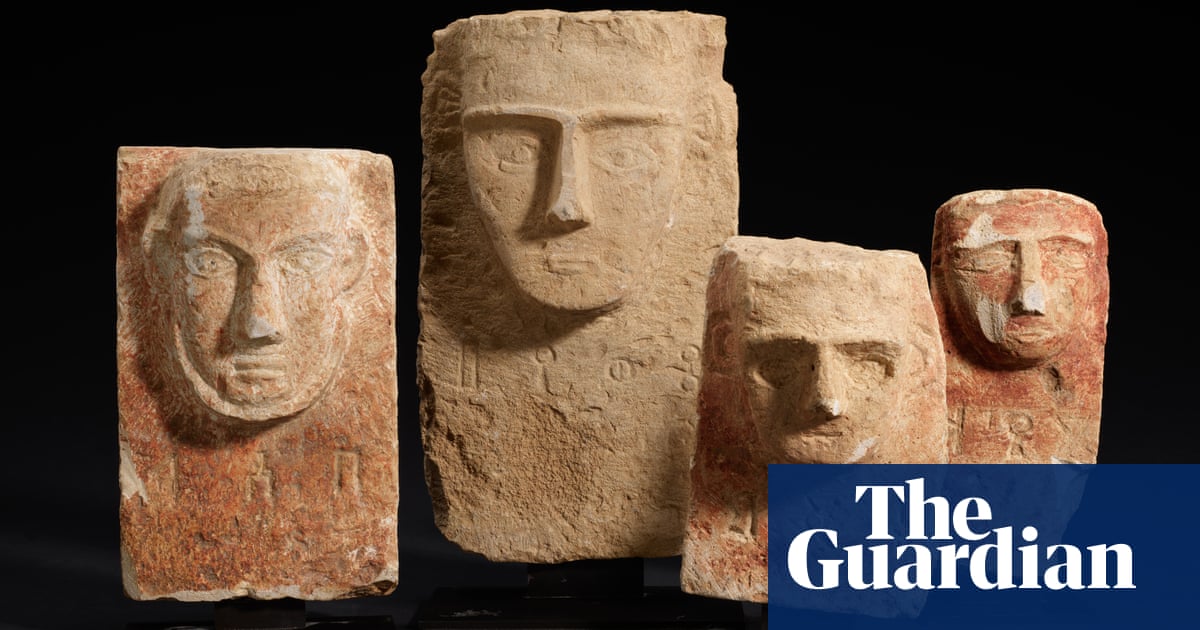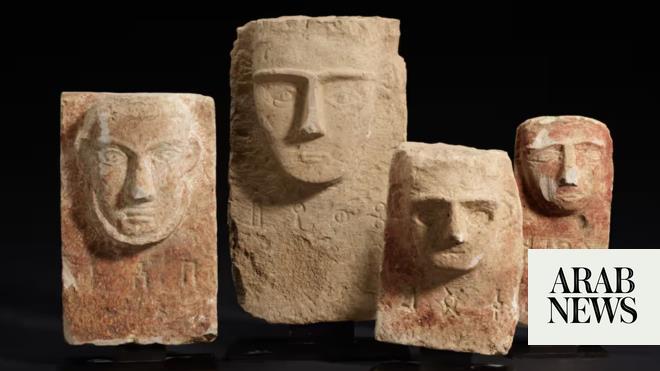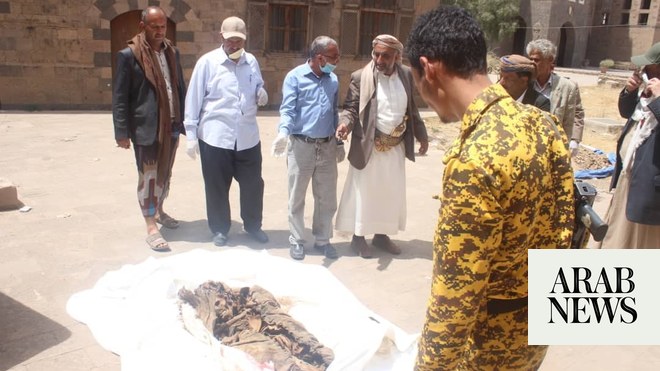
The V&A is to look after four ancient carved funerary stones that were found by police in a shop in east London in a historic agreement with Yemen.
The stelae, which date from the second half of the first millennium BC, come from necropoli that have been looted in recent years.
The V&A will care for, research and conserve the stelae on a temporary basis before they are returned to Yemen when it is safe to do so.
In the meantime they will be on show to the public as part of a display on Culture in Crisis at the V&A East Storehouse from 2025.
There have been growing demands on cultural institutions in the UK and elsewhere to return artefacts that were looted from their country of origin. Particular focus has been on the Parthenon marbles and Benin bronzes held by the British Museum.
The stones were discovered by an archaeology enthusiast in an interior design shop in east London, and recovered by the Metropolitan police’s art and antiques unit, which investigates art theft, illegal trafficking and fraud.
The agreement was signed on Tuesday by Tristram Hunt, the V&A’s director, and Yassin Saeed Noman Ahmed, the ambassador for Yemen based in the UK.
The V&A said the agreement was unique. In most similar cases, objects were stored by museums for a short time before being transferred to their country of origin. The agreement allows for further research and conservation, and for the objects to be on public display.
The stelae were “incredible”, said Hunt. “This is a historic agreement that will give the public the chance to appreciate these exceptional examples of Yemeni culture and creativity, before the objects are repatriated, and shine a light on how the V&A’s Culture in Crisis programme helps curtail the illegal trade of looted objects and the preservation of cultural heritage worldwide.”
Cdr Stephen Clayman of the Metropolitan police said: “The art and antiques unit seized these four stelae from a shop in London following information received from a concerned member of the public.
“The police investigation established that they are ancient archaeological artefacts from Yemen, and came from necropoli that have been subjected to looting in recent years.
“When the seller was given this information they made the generous decision to disclaim them, and asked for them to be returned to Yemen.”
He said he hoped the objects would encourage members of the public to “consider antiquities from a legal perspective as well as an aesthetic one. By establishing an artefact’s provenance before purchase they may avoid inadvertently fuelling the demand for stolen cultural goods.”
Charles Harper, the UK’s deputy ambassador to Yemen, said: “Arts and culture can play an important role in rebuilding a society from conflict and this agreement is a fantastic way to ensure Yemeni culture remains in Yemeni care.
“The war has taken a devastating toll on Yemenis. The UK will continue to support UN-led efforts to bring about a sustainable and inclusive peace in Yemen.”
The objects are of the type on the International Council of Museum’s emergency red list of cultural objects at risk.












